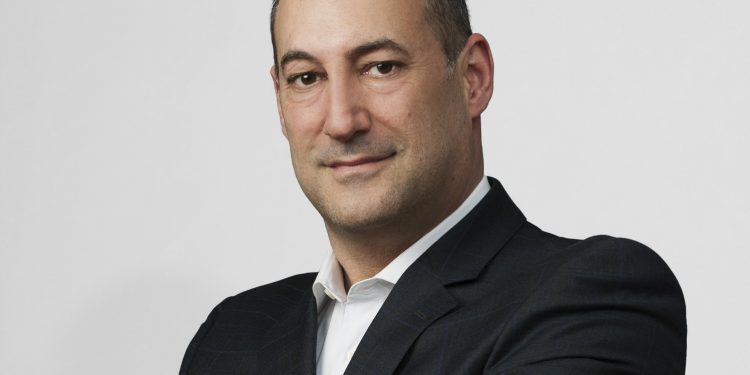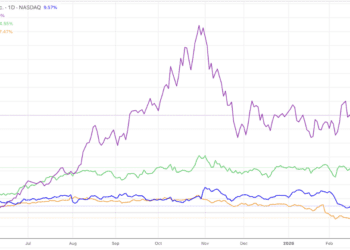Established in 2008, DecisionCFO provides interim CFO and Controller services for public and privately held companies, venture and private equity funds, and family offices. DecisionCFO’s track record includes over $2 billion in transactions completed, 280 client engagements and direct investments in over 60 companies and VC funds since their inception. Leveraging extensive experience working with management teams, DecisionCFO is a valuable asset for companies looking to optimize, scale and exit their businesses through the implementation of financial technology and expertise. Impact Wealth speaks to John Evans, the visionary Founder and CEO of DecisionCFO, on his strategies for achieving Alpha returns on his investments and what he feels is the next big area poised for growth.
What was missing from the marketplace that inspired you to launch Decision CFO?
JE: Timing is everything. We saw the opportunity back in 2008, when the peak of the financial crisis was taking place with changes that were driving the beginnings of the technology and finance industries here in New York City.
What stage do companies reap the greatest rewards from working with you and where do you see the greatest advantages that you can offer?
JE: We work with companies that have either raised some level of money or have sales of $1- million up to $100 million in top line revenue.
Do you also get involved with the fundraising aspect or take a position in many of the companies?
JE: We get involved in helping the companies with their fundraising strategy, their investor presentation and their financial model to ensure that they are properly aligned from the perspective of what is the pitch telling me and what can I glean from the numbers that will substantiate what I’m seeing here in the pitch. The second part is that we do make investments in the companies, though we’re much more selective these days. I also run the family office for the investments that I’m making as well, where our focus is on becoming limited partners with up and coming venture capitalists. When we contribute money as an LP, we can assist with financial due diligence, as well as provide operating support to their portfolio companies. This is a method for us to generate alpha returns by combining the expertise of both businesses. Our metric for success is what we would call relationship return on invested capital.
How do you drive returns to that investment?
JE: You drive it in a couple different ways. There are the obvious ones, which are the returns that you get from being a partner in a VC fund, but there are also the ancillary returns on engagements for providing due diligence for the companies and the returns from servicing the portfolio companies. When you add that on top of the financial returns, you essentially have Alpha performance. Currently, we have worked with 5 funds and are looking to do our sixth LP investment this year.
Where do you see the biggest growth right now?
JE: We focus on the technology and healthcare industries, and some of the subsets of those industries include FinTech and crypto. But it’s all about the business performance itself. We think the crypto area holds a lot of promise particularly on the B2B infrastructure side of the Blockchain.
Do you think that that the risk has been mitigated in crypto?
JE: We’re having the same moment with crypto that we had in 1995 with Netscape and it was completely revolutionary. This is the latest stage in a technological evolution that has been taking place since the 90s where all of a sudden people had access to a very broad market that was followed up by a mobile revolution that took place in the 2000s. Now what you’re seeing is the same thing that’s taking place in FinTech and crypto and I separate that from the blockchain, because I think one has more of a speculative component to it.
What do you think are the advantages of companies working with you?
JE: During the early stages of a company’s growth, many companies don’t have the resources to bring on full time talent, even though they desperately need that expertise. These companies benefit at the early levels of their business just by understanding how they’re spending their cash. By implementing a couple of basic processes, we can deliver immediate value to a company in that very important area. Oftentimes, you have founders who don’t have capital markets experience and we can bring that to the table in a cost efficient way. For example, to hire an experienced CFO who has raised money, you could be paying anywhere between $150,000 to $400,000, a year, plus some level of equity between 0.5 and 1.5%. By bringing on a fractional CFO, only as you need it, a company benefits from the CFO skills without the full time cost. . Once a company has reached a certain level of maturity, they are in a better position to go out and bring on someone full time. We’ve also helped companies exit by ensuring their books are properly organized according to U.S. GAAP, and are ready to present to prospective buyers.
What are some of the biggest success stories that you you’ve had that you could share?
JE: We worked with CitiBike, which is one of the largest public private partnership in the United States, if not the world, for local ride sharing. We were involved in both the launch operations of CitiBike along with their subsequent sale to a private equity owner and then ultimately to Lyft.
We were also involved in helping out with the sale of Tumblr to Yahoo. Recently we were involved with a company that ultimately exited to Facebook for over a billion dollars. We also have a lot of companies that are still at the private level, where they’ve received significant markups to their rounds.
How do you protect your companies to maximize their returns with VC funding?
We sign our engagements with the company not with the venture funds and our relationship is going to be strictly arm’s length with a particular VC. We go into the VC fund as an investor expecting outsized returns on that limited partnership, and we evaluate all our VC relationships on two criteria. The first, is what I just described in terms of return. Second, is the ability for them to be a strong partner for DecisionCFO. Our e advantage of working with a VC fund is that it gives us credibility and it gives us a warm intro into a particular business, either in terms of the opportunity to bid on an existing piece of business or through due diligence that we perform on that company on behalf of the Venture Fund.
Where do you see the growth of Decision CFO in the next 5-10 years?
JE: By that time, we will probably be a family office and a collection of investments that we have versus being a servicing and operating business. We would expect that there will continue to be opportunities for us to work on companies. I’ve been doing this now for 14 years and I love what I’m doing, every day is fun, because you’re meeting with really super smart, ambitious and interesting people who are looking to change the world. I felt so fortunate and blessed that I had a ringside seat to witness this explosion take place over the last 14 or 15 years.
Is there a certain kind of criteria that you go through to evaluate whether or not to invest in a client? take on a client?
JE: We generally don’t like to do underfunded pre revenue companies, that’s too much speculative risk, and a company has to have a certain level of resources to be able to afford what we do. We always talk to folks, and if we can’t be of service to them directly, we try to point them in a direction where they might be able to identify talent to help them solve that problem.
What kind of commonalities have you seen for companies to be successful?
JE: The best teams are the ones where the founders clearly understand their roles and have a level of emotional intelligence about what their businesses and limitations are and possess the capability to deliver on what they say they’re going to do. It’s super important for companies, who take institutional money in to be able to deliver on their projections and promises about what they’re going to do. Performance at the end of the day is something that always counts. I think the best teams are the ones not necessarily with the best idea, but we’re able to execute the best.

















